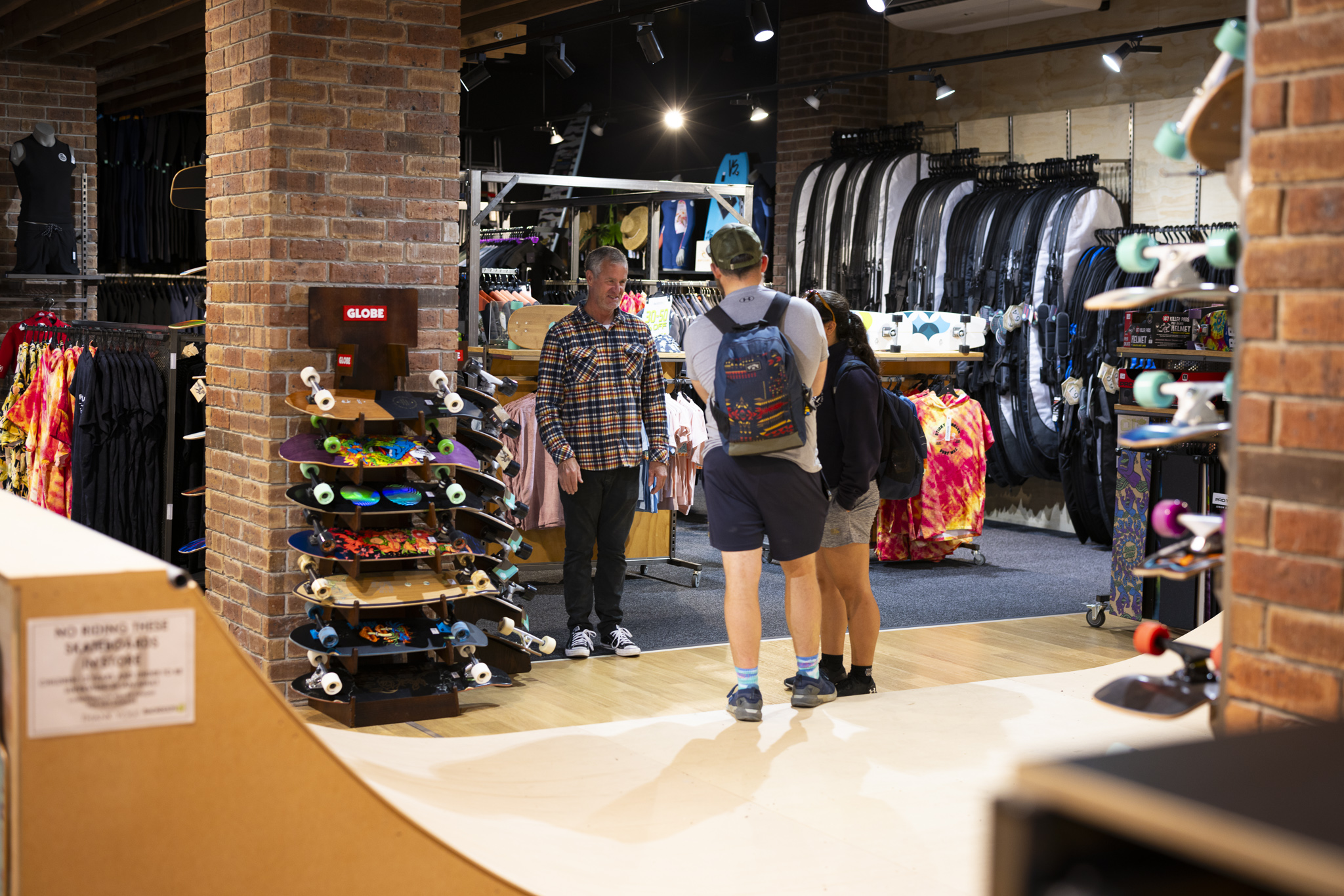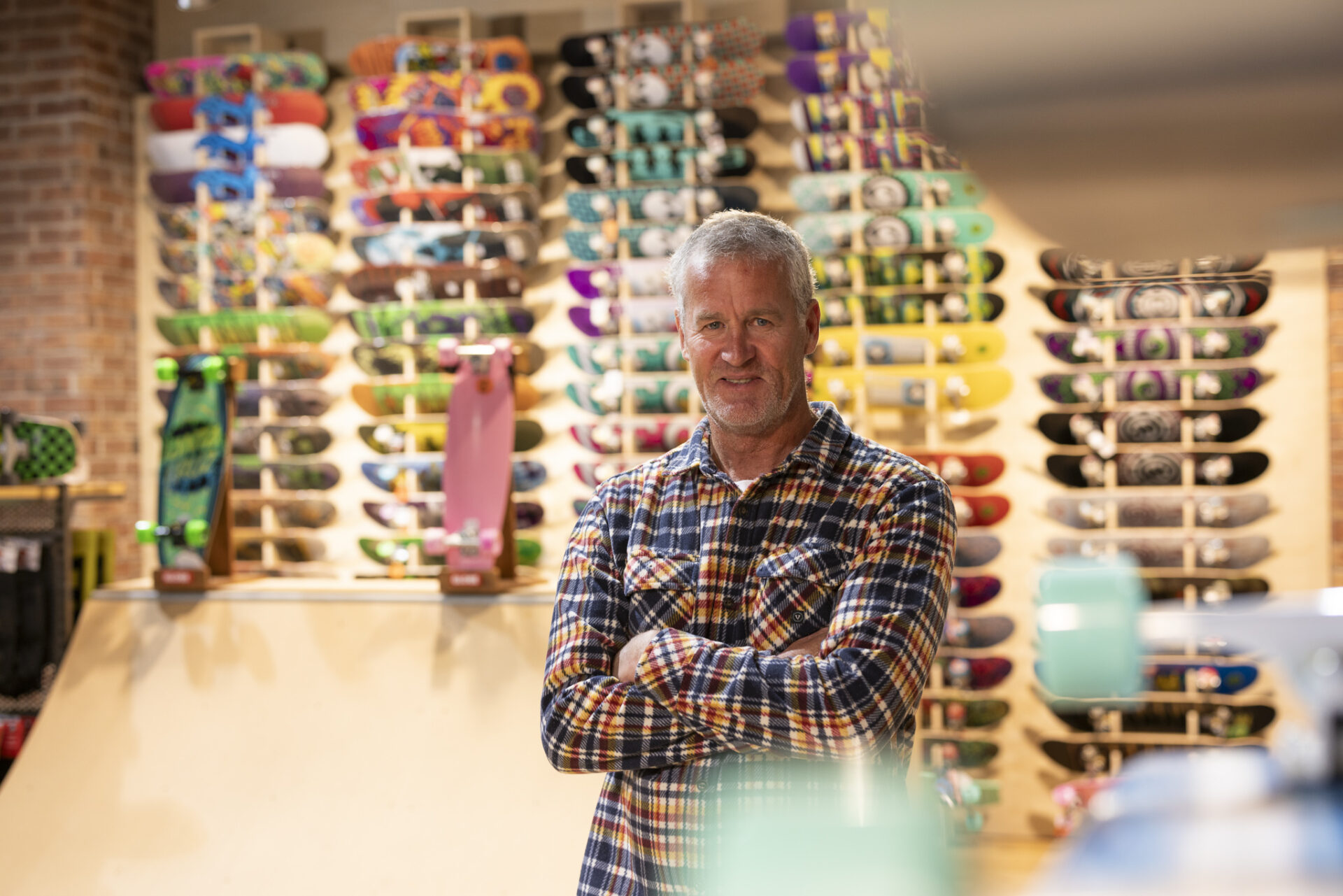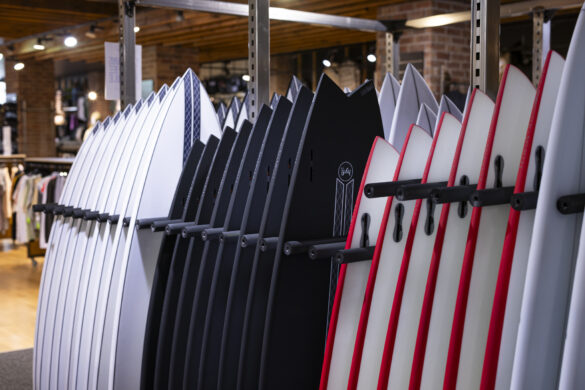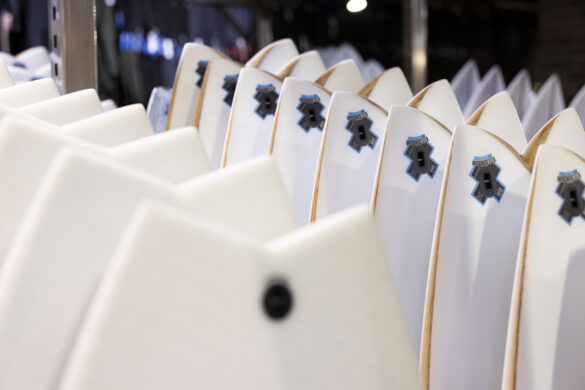While the surf industry seems to be in a slump, Backdoor’s Geoff Hutchison remains cautiously optimistic as he opens his 25th and biggest store in Dunedin.

We caught up with the 60-year-old ripper and surf business guru to learn a bit about what’s going on in the surf industry right now.
“We’re in a pretty interesting time,” Hutch begins. “After the Covid boom, that happened in all sorts of adventure sports, outside sports – where all the so-called safe Covid sports blew up. Now we are on the backside of that and once overseas travel started again, and Kiwis started leaving the country we found that a lot of those purchases that were made were mostly one-offs.”
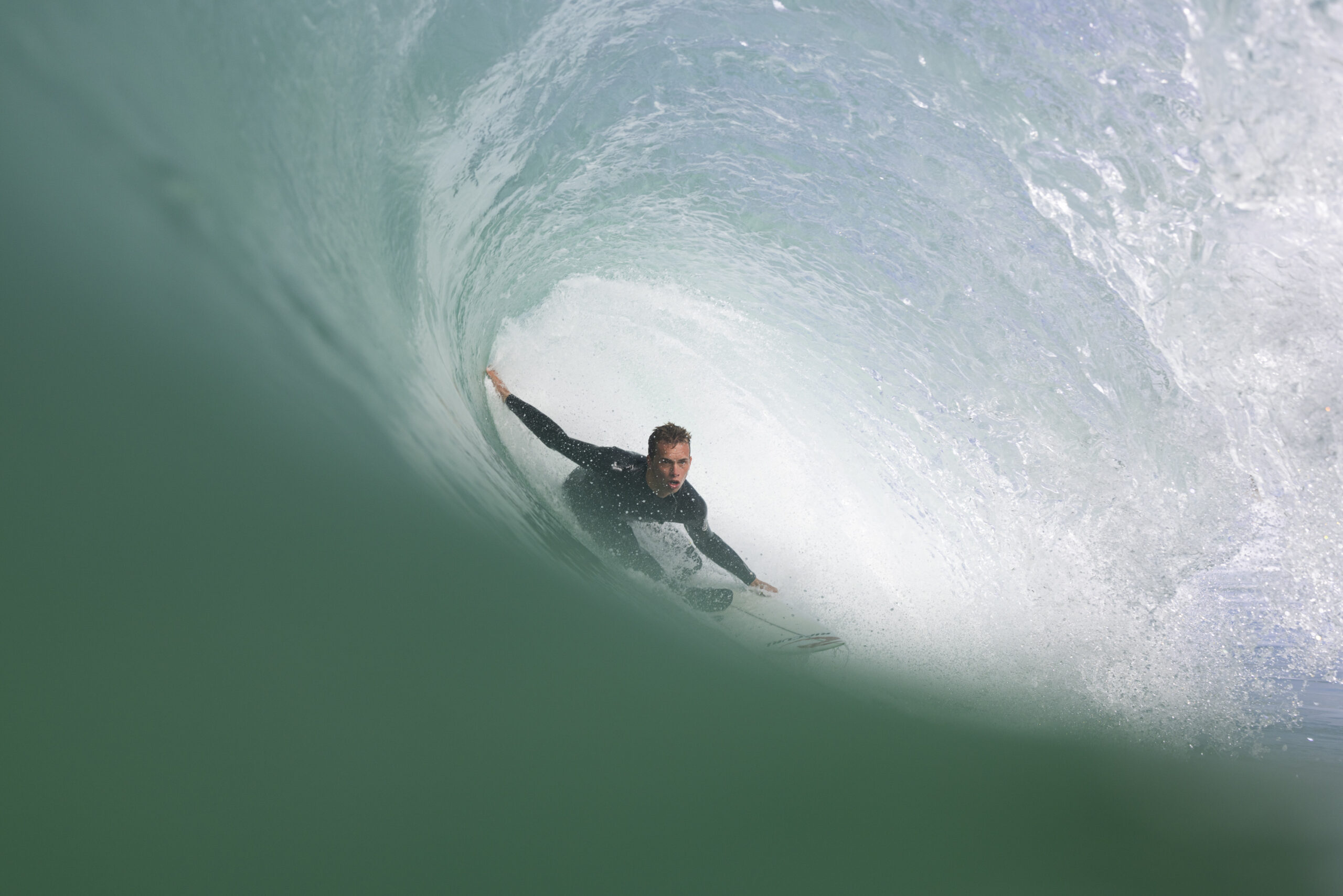
He said that during Covid they saw a lot of new people buying surfboards, or a new mountain bike, or a new set of golf clubs – spending the money that they couldn’t travel with.
“Now, all of that behaviour has stopped,” Hutch explains. “From what I’m hearing some of the bike shops are doing it really tough right now. A lot of the outside sports shops are doing it pretty tough and surfing’s much the same. Our own sales of surf hardware have dropped away, particularly in the punter market – the punter equipment like soft boards, your basic four three wettie, or the GSI Modern board – purchases like those have all slowed up.”
Managing that pendulum swing in buying must be an art, especially when you’ve got 25 stores to think about.
“It’s quite difficult because you’re always trying to forecast ahead and you’re trying to get a gauge of where you’re going to be at,” Hutch reveals. “But with long lead times, you end up either under-ordering or over-ordering, and we’ve found ourselves in a pretty big over-order situation, which is complicated by a lot of our brands delivering very late.”
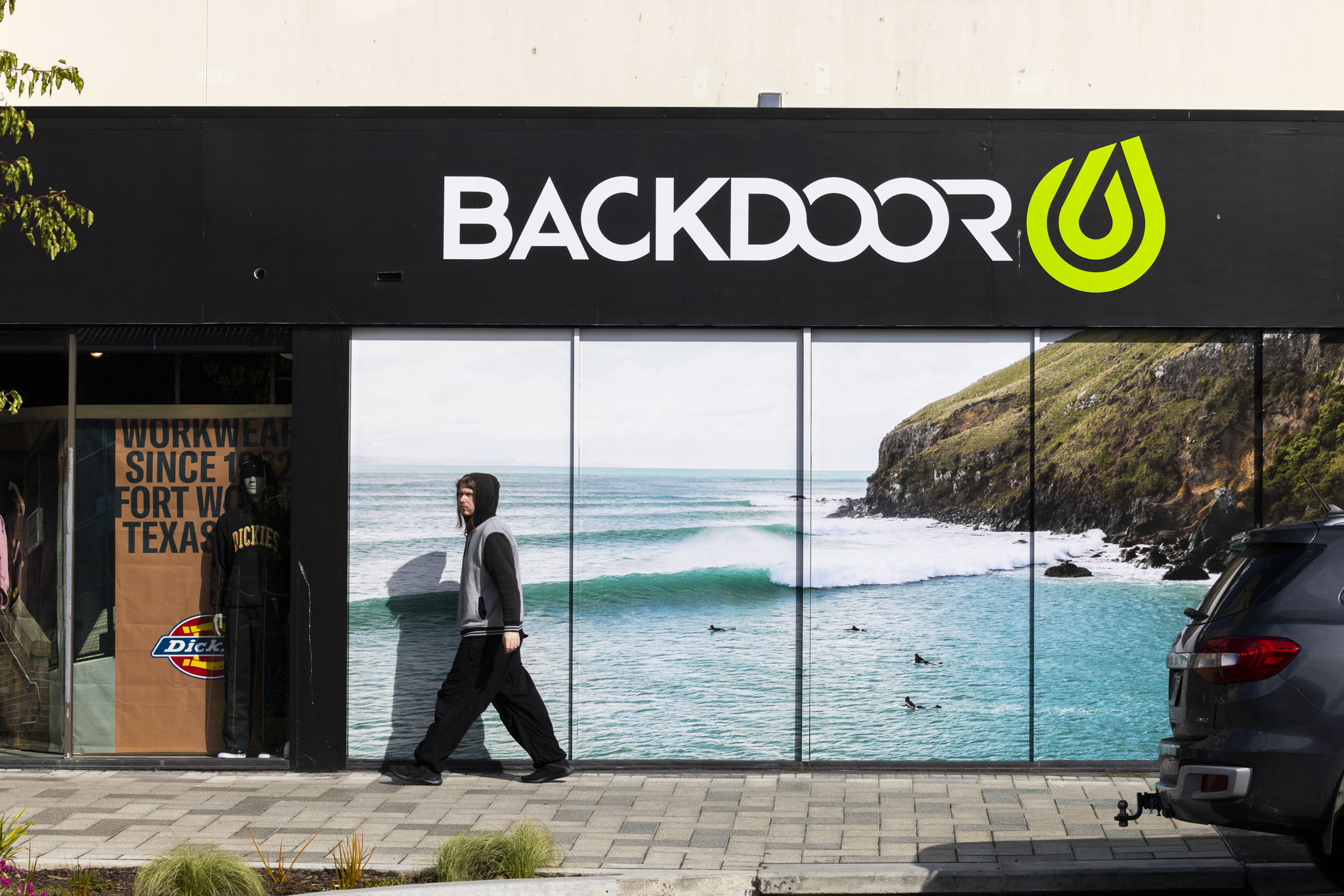
Hutch said the supply chain disruption culminated in very late deliveries, contributing to the backlog.
“That caused a lot of late deliveries and now everybody’s caught up and now you’ve got early deliveries, which has just caused a bit of a glut,” he explains. “We are just working our way through that. For instance, we’ve got 60 pallets of skateboard completes in our warehouse right now. That’s down from a hundred, but we’re slowly, slowly working our way through. And they’ve started to sell again now. We just work our way through that bit by bit.”
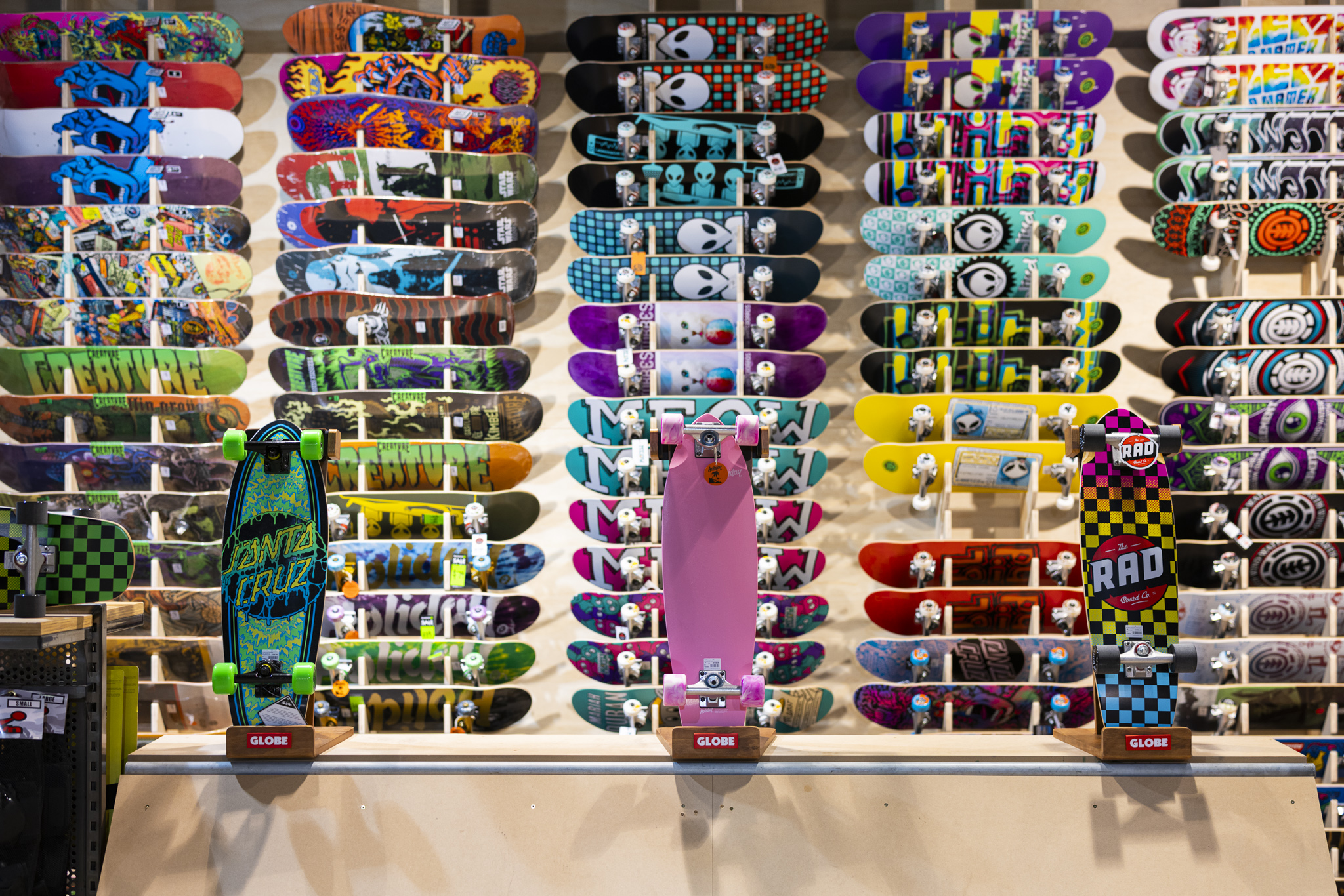
The seemingly endless expansion of the Backdoor empire saw two more stores added in 2023; one in Invercargill and the most recent Dunedin store, which also has the biggest footprint of them all.
“We always kind of had a plan to fill a geographical spread around the country,” admits Hutch. “There’s no target figure in mind. In fact, we’re probably going to shut two or three next year that are unprofitable. We’ve got a few that are not quite sited in the right place, but we did want to finish the geographical spread so from Christchurch to Timaru, Dunedin, and Invercargill.”
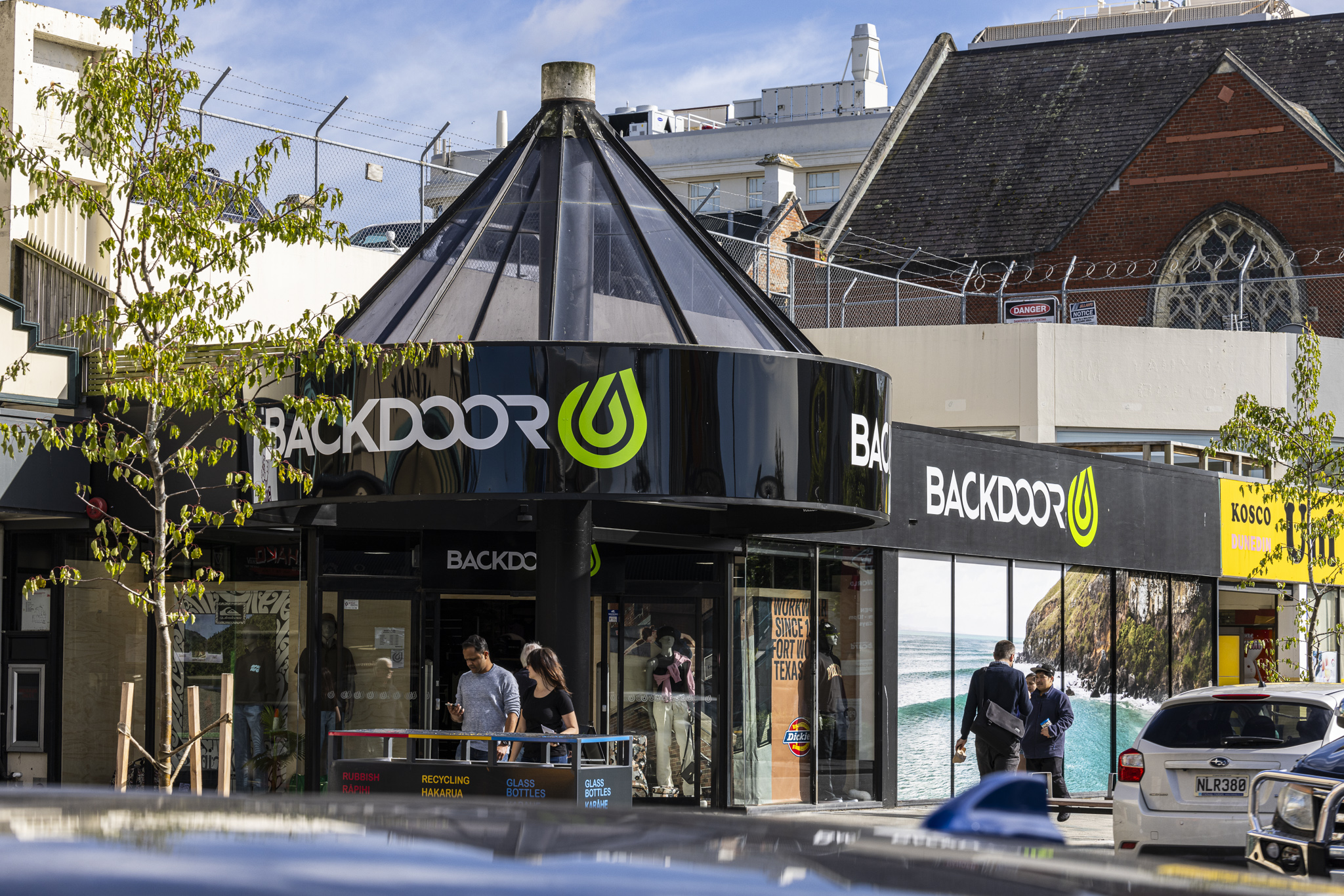
Hutch said they had been looking for a Dunedin site “on and off for about three years” but couldn’t find the right site.
“We wanted to be in the city,” Hutch offers. “Then the former Kathmandu site came up and the landlord was extremely reasonable and was quite prepared to do what we considered to be an amazing deal. And through our connection with Rip Curl, which is owned by Kathmandu, they were prepared to leave the fit-out behind. And that was such a huge money-saving thing. That kind of swung the whole deal. Plus, the landlord was prepared to do an initial short-term lease. So, if it doesn’t work out, nothing ventured, nothing gained. It’s relatively low risk and on that basis we went ahead. Even though we’re in recessionary conditions, we thought, nah, this is a good thing, we need to do this.”
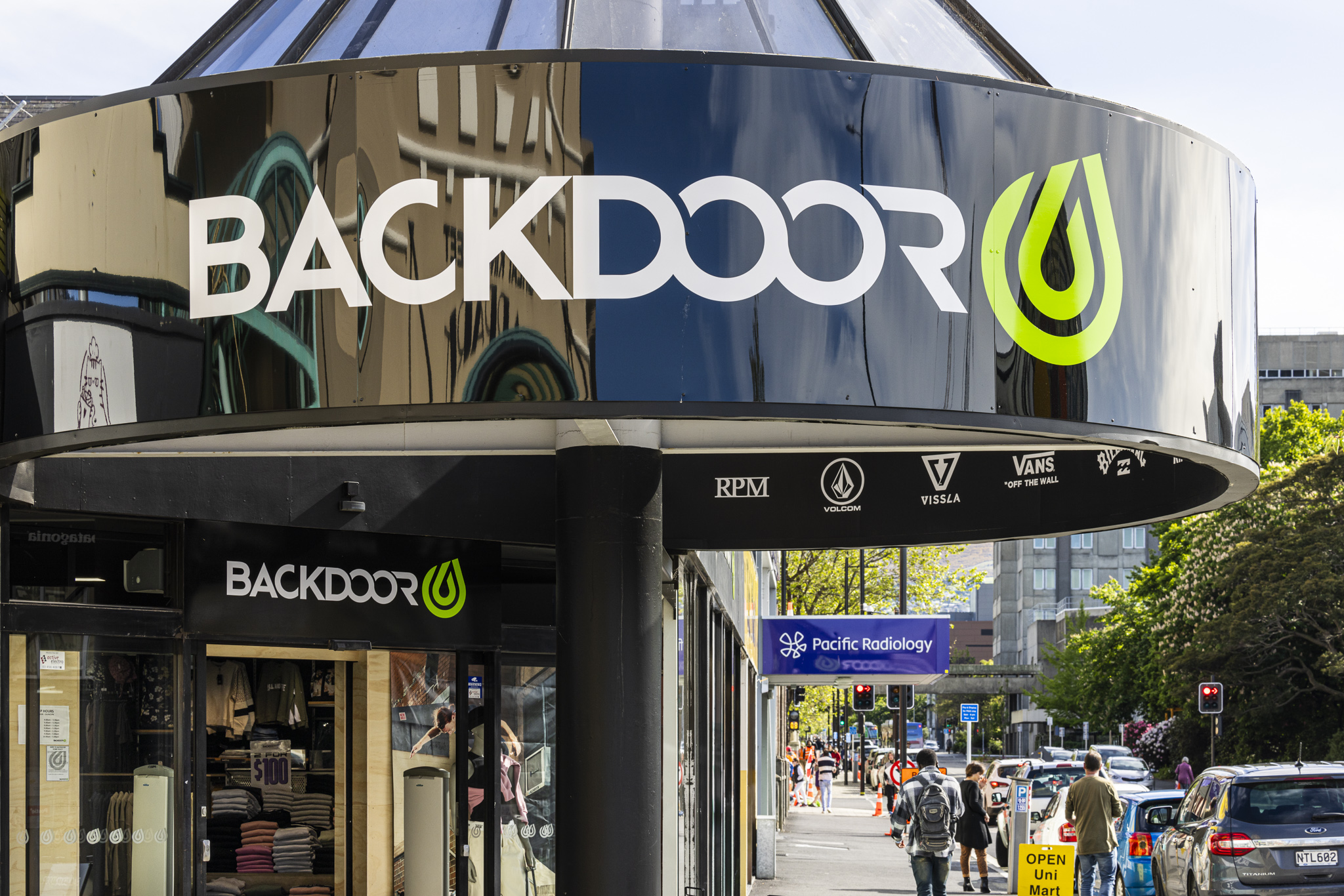
Hutch said he had good support from the brands, but that had shifted from where it was just a few years ago.
“You can tell that no one’s got any marketing budget,” he explains. “Things like graphics and lightbox images and stuff like that. There’s just not the availability of support that was there even three years ago. Window banners – all sorts of stuff that you would normally think is marketing support for the product that you’ve just pushed to store, well that budget just doesn’t appear to be there. It’s just not there.”
“The big brands don’t care much for what’s happening in New Zealand because they’re all Australian or internationally based. They look at New Zealand and go, ‘Ah, it’s just a little place’.”
“The big brands don’t care much for what’s happening in New Zealand because they’re all Australian or internationally based. They look at New Zealand and go, ‘Ah, it’s just a little place’.”
The lack of support has become disturbingly visible in the sponsorships that are available today for New Zealand’s best surfers – it’s a far cry from the lucrative sponsorship landscape that Maz Quinn enjoyed in the late 1990s and early 2000s.
“Maz grew up in a golden time for the surf industry,” recalls Hutch. “At that time, surf fashion was booming. There were so many surf stores, and everybody wanted to wear Quiksilver, Billabong and Rip Curl. It was a huge growth curve.”
“I don’t think the surf industry has managed itself very well. Whether it was private equity plays or the public company thing, listing on the stock market, many of those moves did not play out well.”
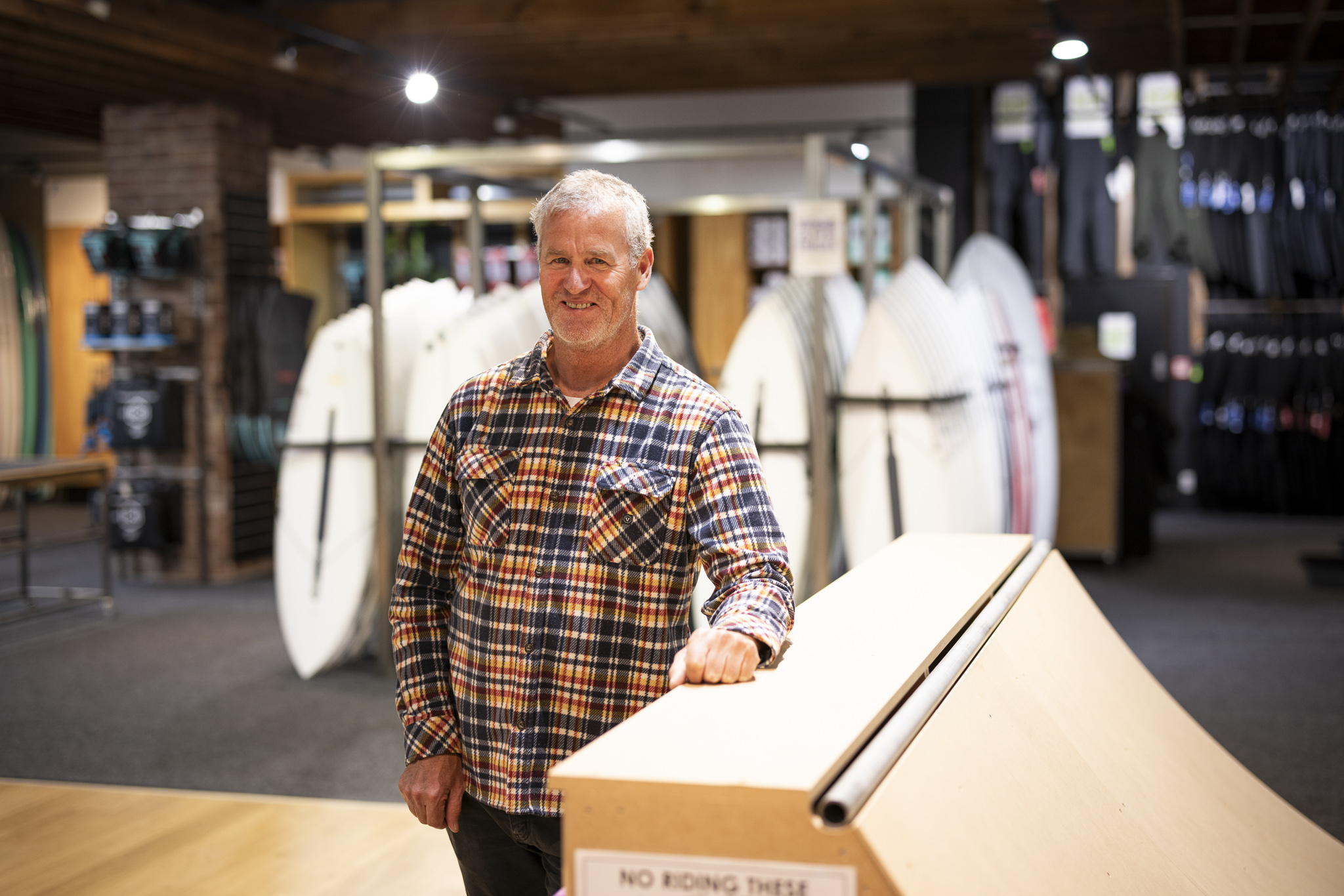
Hutch said Phil Jarratt explained what happened in his book called, Salts and Suits.
“Basically, when the suits got involved in what the salts were running, everything started to fall apart and the numbers meant everything,” Hutch shares. “And so the glory days of Maz’s era are probably well behind us. It’s really tough. Look at someone like Billy Stairmand who’s going to be a two-time Olympian for New Zealand, and he’s doing it tough. Finding sponsorships and support is not that easy. There isn’t that much money around.”
Hutch admitted he didn’t know what the answers were.
“There’s clearly money at a global brand level, but it’s flowing to the biggest names,” Hutch offers. “And if you’re at number 20 in the world, well many of those guys have got nothing, or just a whole bunch of little ragtag sponsors. It’s tough.”
“There’s clearly money at a global brand level, but it’s flowing to the biggest names. And if you’re at number 20 in the world, well many of those guys have got nothing, or just a whole bunch of little ragtag sponsors. It’s tough.”
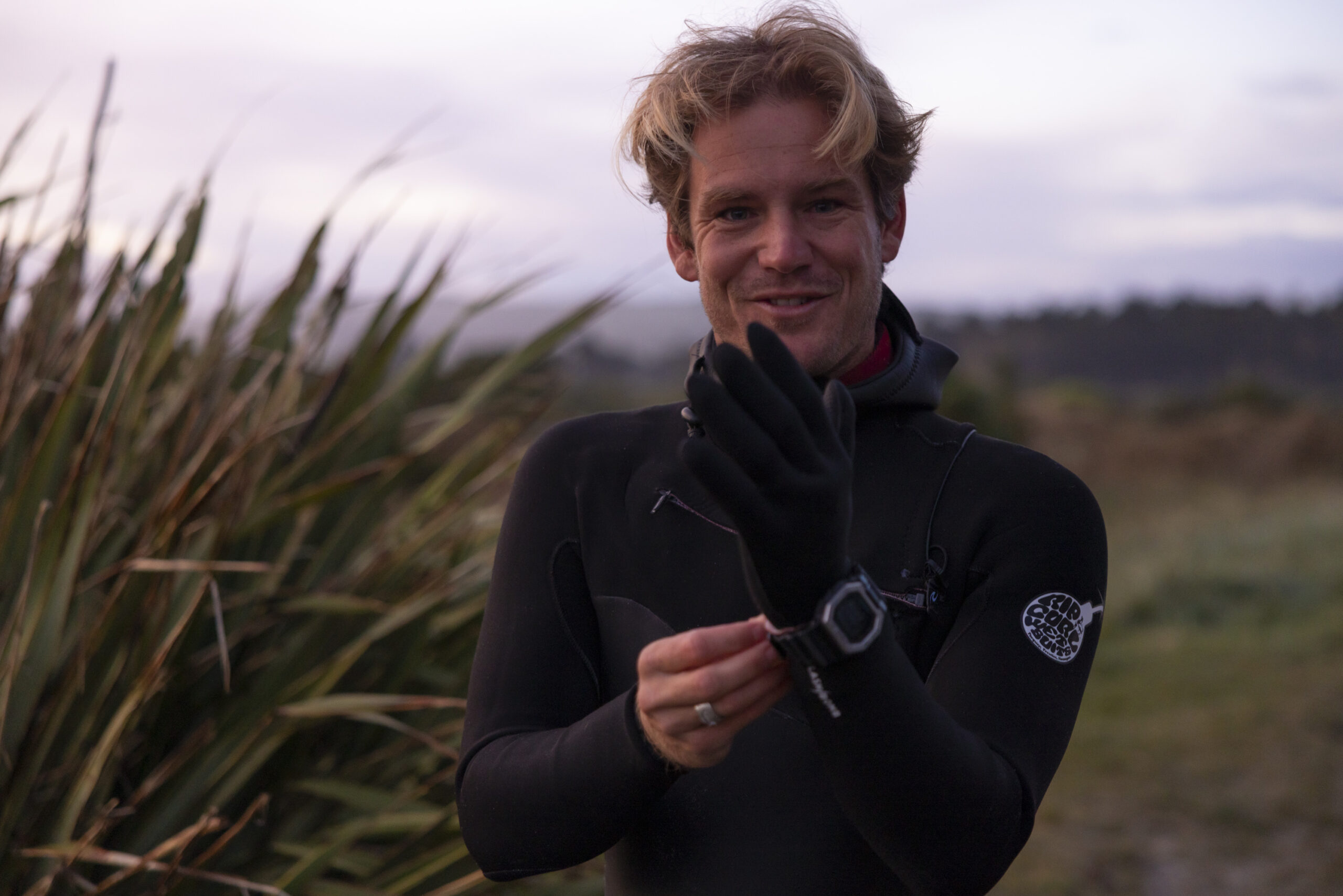
About five years ago, during one of Billy Stairmand’s public fundraising campaigns for the coming QS season, Hutch decided to get behind the Raglan surfer. That changed the game for Billy in many ways.
“I actually can’t remember who approached who,” Hutch explains. “We talked quite a bit – I surfed with him all the time. I think we chatted about it and figured out how we could support him.”
Billy was riding Raglan shaper Luke Hughes’ Hughes Surfboards at the time and was just starting to experiment with Sharp Eye surfboards, as well.
“We didn’t stock Hughesy’s boards,” Hutch recalls. “Luke’s a good mate, as well. I think I rang Luke and said, ‘Hey, will this work if Backdoor sponsored Billy?’”
Around that time Billy jumped onto Sharp Eye boards and with Backdoor stocking Sharp Eyes, things fell into place.
“We came up with a deal to financially support him,” adds Hutch.
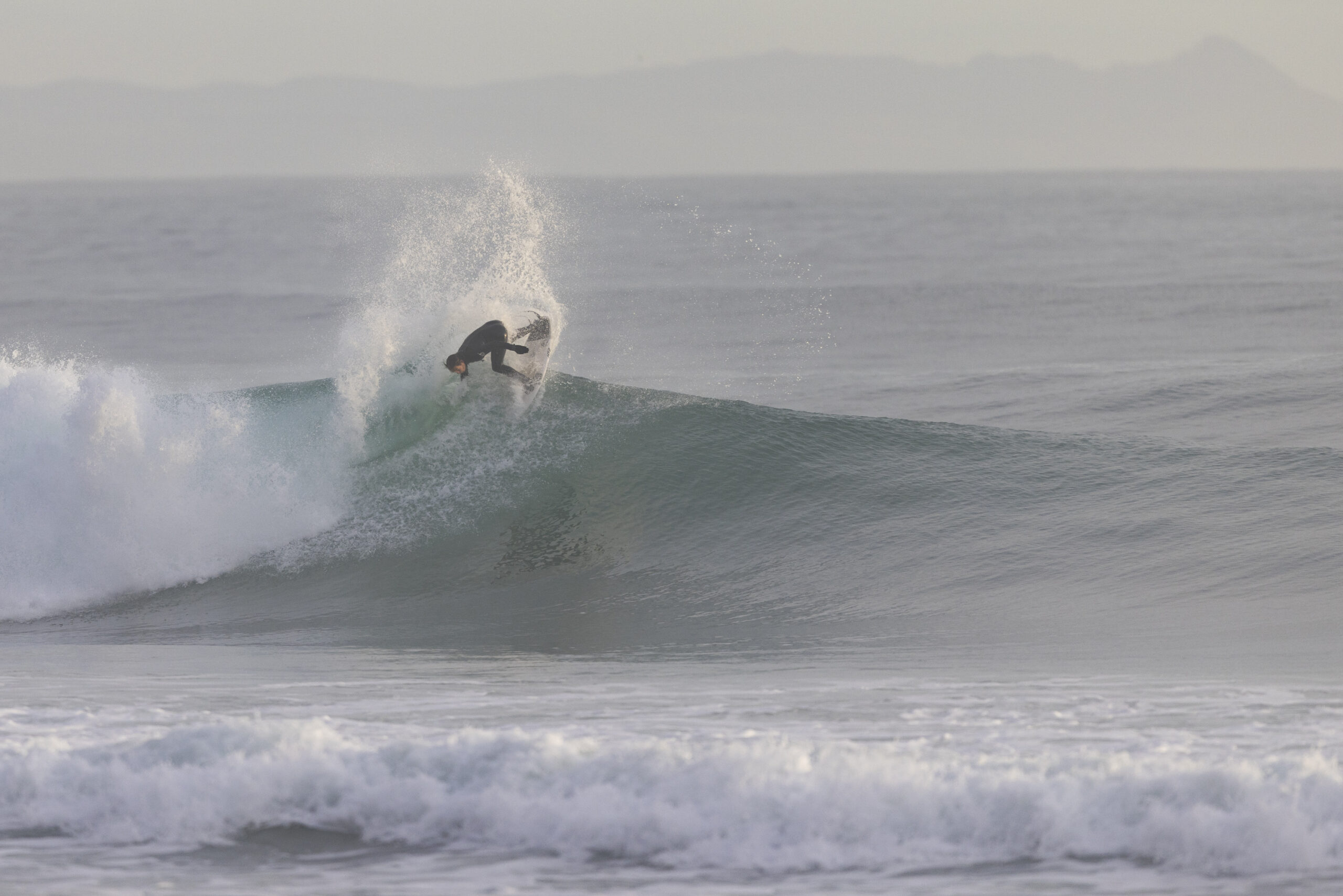
About a year ago Hutch also bought RPM Clothing.
“Billy had always left the nose of his board blank, looking for a key clothing sponsor,” Hutch explains. “And there was no one coming out of the woodwork. I pushed a couple of brands to say, ‘Hey, can we get Billy on your team, you know, how can we make this work for him? Can we buy more product to make it work for Billy? And it just didn’t seem to go anywhere.”
“I pushed a couple of brands to say, ‘Hey, can we get Billy on your team, you know, how can we make this work for him? Can we buy more product to make it work for Billy? And it just didn’t seem to go anywhere.”
“In the end, we chipped in some more money with RPM and so we’ve been able to help him that way,” Hutch shares. “And I guess whether we like it or not I reckon there’s an ageism thing there. Once you hit 30, they’re kind of looking at you on the downside of things. Yet you look at Kelly and he’s 51 or 52 and he still gets the biggest eyeballs on screen for his heats … out of everyone. So, I don’t think the age thing should come into it – it’s got to be around what you bring to a brand.”
Hutch expressed his frustration at the big global brands’ attitude toward some of our best Kiwi surfers.
“Look at Billy, and Paige, too – they’re giants here,” Hutch offers. “Totally giants. When we did the deal with RPM, I said to Billy, ‘Hey, look, if something better comes along, we’ll jump out. It’s all good. We are there as a backstop. RPM’s pretty little for us, but we are there to help while we can. And if something bigger came up and you want to take a better deal, then that’s all good by us.’”
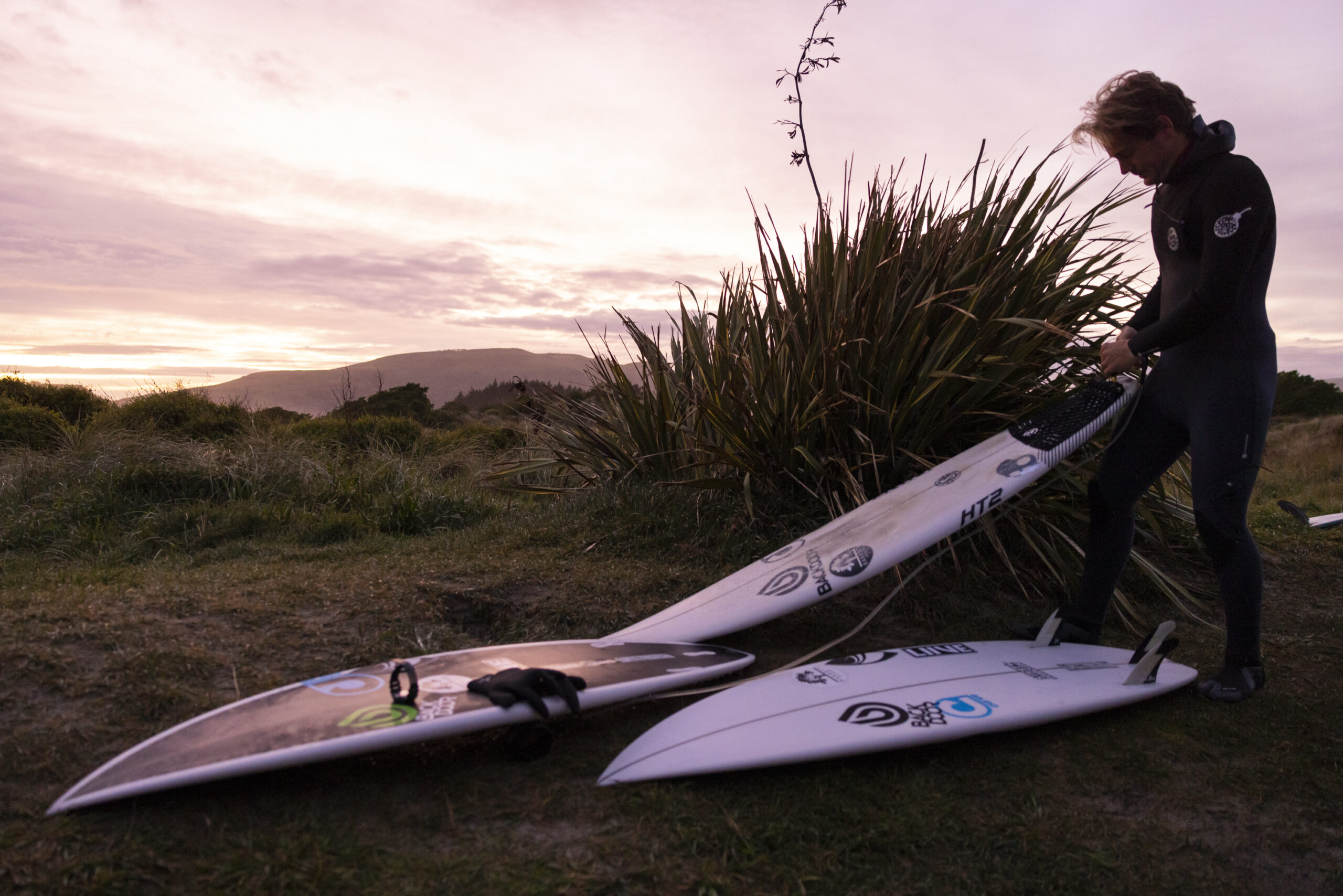
Hutch’s support of Billy has been noted, mostly because Billy himself is such a great ambassador. But in an Olympic cycle that support gets buried to a certain extent.
“The Olympics is a weird one because you don’t get any sponsor recognition,” Hutch reveals. “You’re essentially surfing the Olympics with a blank board. It’s kind of weird like that – even in your own social media posts you’ve got to be careful with everything. You can do a little bit, I think. But once the event starts, you’re pretty much on the low down.”
“When we did the deal with RPM, I said to Billy, ‘Hey, look, if something better comes along, we’ll jump out. It’s all good. We are there as a backstop.'”
Hutch admitted that he didn’t know what the future held.
“I would like to think that we are at a low point of industry investment,” he offers. “A low point of sponsorship and industry money that’s previously flowed back into surfing that has just been shrunken and shrunken and shrunken over the past few years. I would like to think that various up-and-coming brands will look at investment and go, right, what can we get? What bang for our buck can we get?”
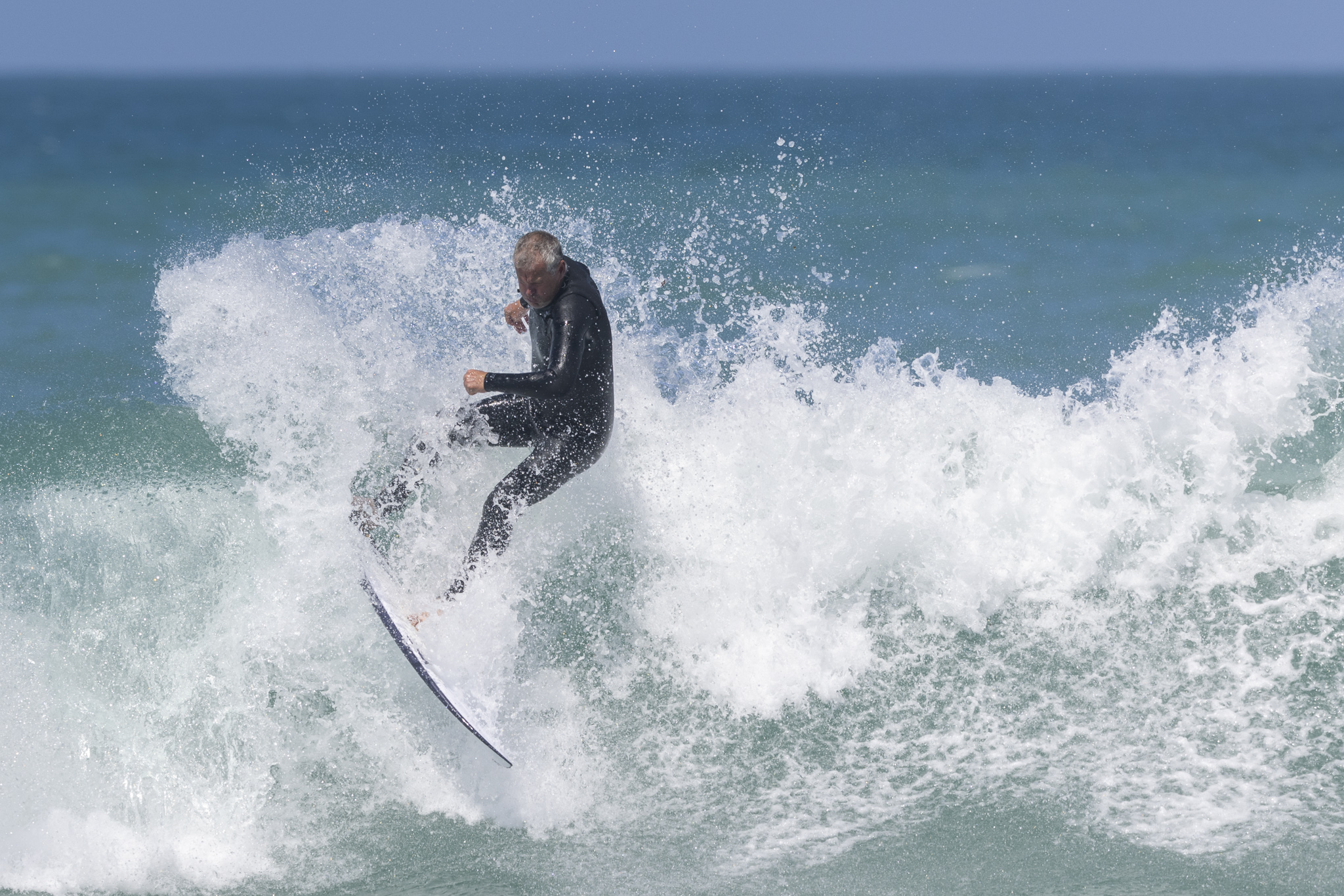
Hutch said there were pockets of investment happening and he highlighted the longevity of Te Kehukehu Butler’s relationship with Quiksilver.
“Kehu has stayed incredibly loyal to the point where he now has his own side clothing line of Quiksilver … and I’m actually wearing it,” Hutch tells me showing off his hoodie. “I’m wearing his sweater. And that launch of that particular subcategory of Quiksilver, the Tai Kehu Collection, has gone incredibly well for us.”
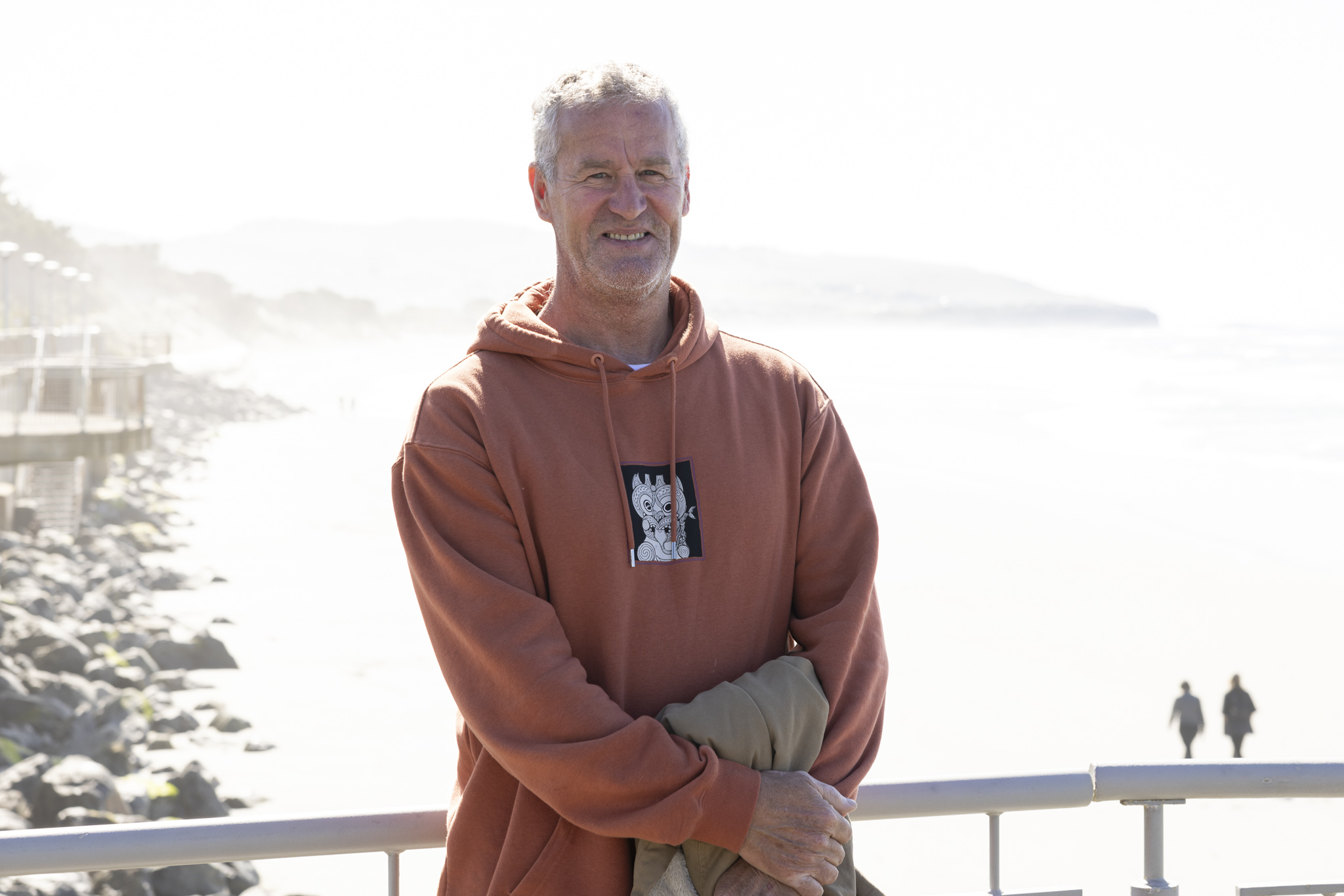
Hutch admitted he was initially quite sceptical about it.
“I thought, mmm, I dunno if this is gonna work,” he recalls. “And it has sold really well – to the point where we’ve had to reorder it. There are pockets of good stuff happening.”
When asked if New Zealand Surf Journal readers should be supporting New Zealand brands and initiatives like the Tai Kehu Collection, Hutch was unequivocal.
“I would like to think there’s a return from that,” Hutch asserts. “At Backdoor we do a couple of big events a year, sometimes three. It’s incredibly hard to gauge whether you get any feedback out of that. To do a Surfing New Zealand event costs the best part of 20 grand these days. And it’s hard to gauge whether you make more sales because of that. But it’s also part of our DNA – it’s what we do. We are always going to put back into surfing. It’s where we came from. I started my journey as a competitive surfer and kind of fell into surf retail by accident and I’ve always enjoyed the contest scene and the camaraderie of it. So, we’ll always be there – regardless of whether it works or not.”
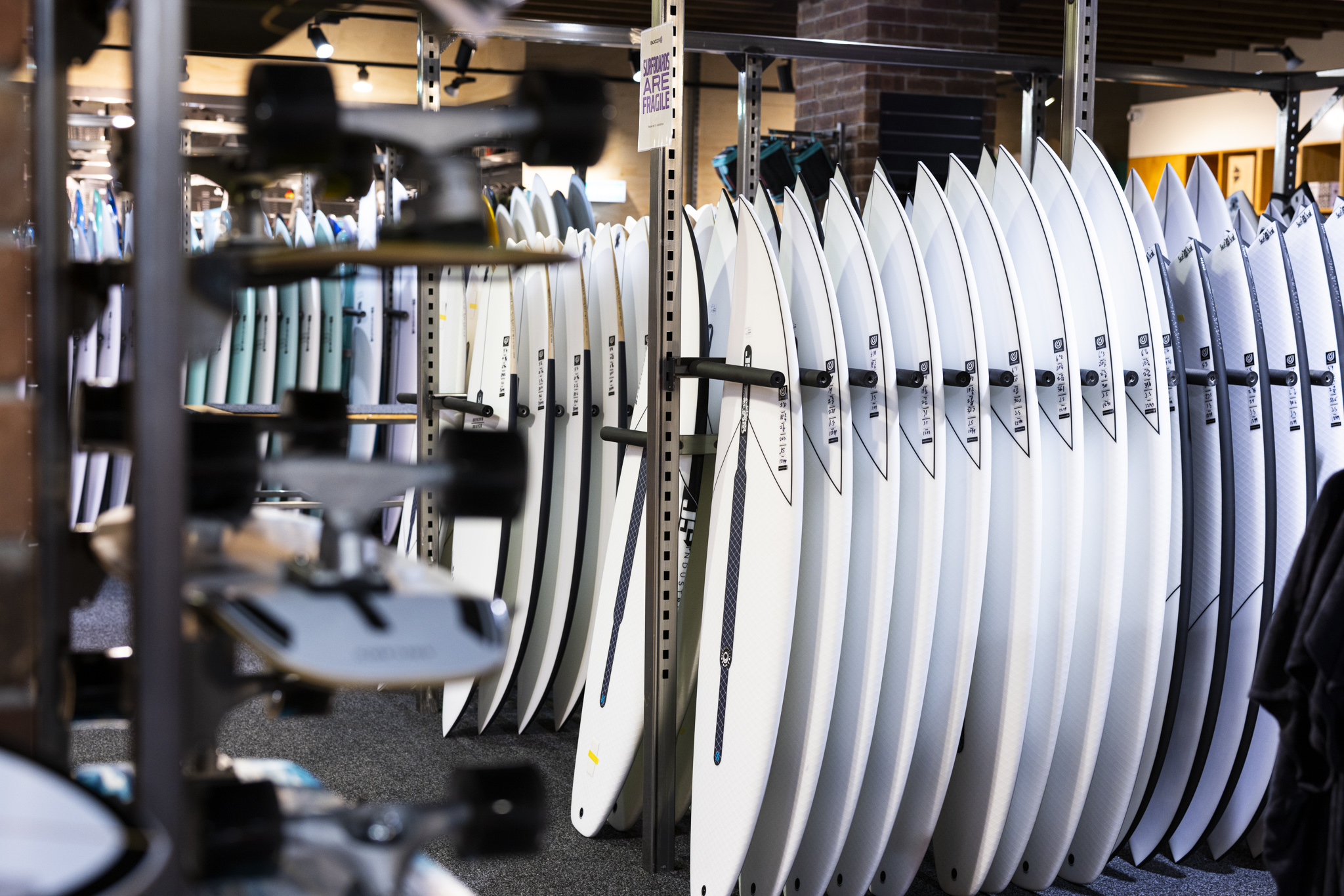
Along with Billy and Paige Hareb’s sponsorship, Backdoor has a team of 8-10 surfers in New Zealand.
“We’ve had to let a few go because, we’ve got to be quite tight at some point,” Hutch admits. “There’s quite a lot of complication and work that goes behind sponsoring someone. We’ve got a skate team as well. We’ve got about eight skaters and we’re looking closely at that because some of our team riders are not giving that value back.”
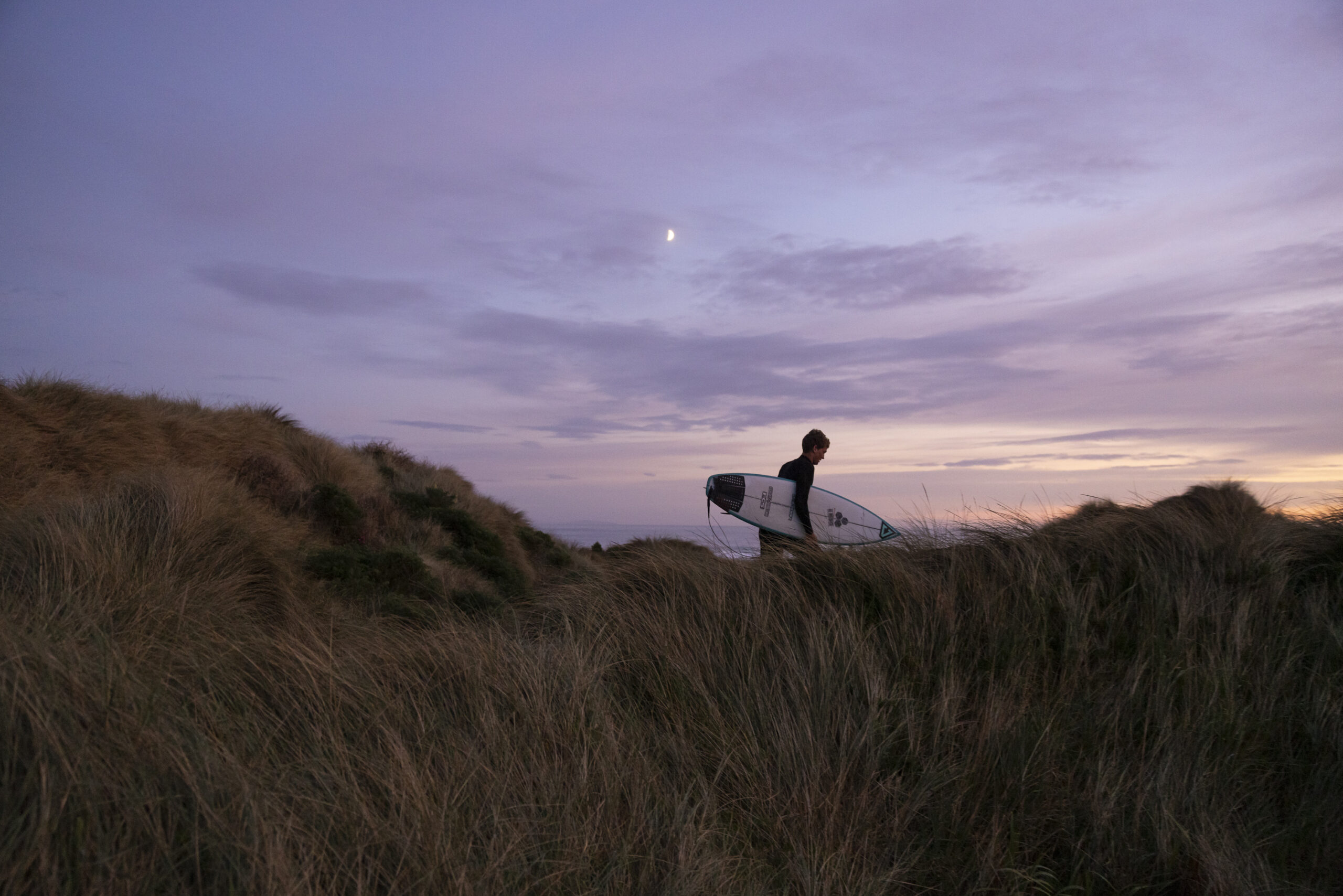
He said it was a requirement to have the stickers on their boards and some were not doing that.
“We renew our contracts each year, because that way it’s easy to tidy up,” Hutch explains. “Every year in January we renew our contracts and I can tell you right now that we’re going let a few skaters go. Because what are we getting out of it? Nothing. And they’re meant to post their stuff on social media. They’re meant to tag us in stuff, and they’re meant to put the stickers on the board. If they don’t want to put the sticker on, well, laters. We’ve got to get a return, too. It’s a pretty simple ask – it’s not much.”
When asked what return on investment he expected from a sponsored athlete, Hutch said it was impossible to measure.
“Literally, how do you measure that?” he asks. “There are various ways of trying, but you’re relying on what you think the return is. At the end of the day, you’re just trying to put something back in and acknowledging that it may or may not work, but it’s doing good for the sport.”
“At the end of the day, you’re just trying to put something back in and acknowledging that it may or may not work, but it’s doing good for the sport.”
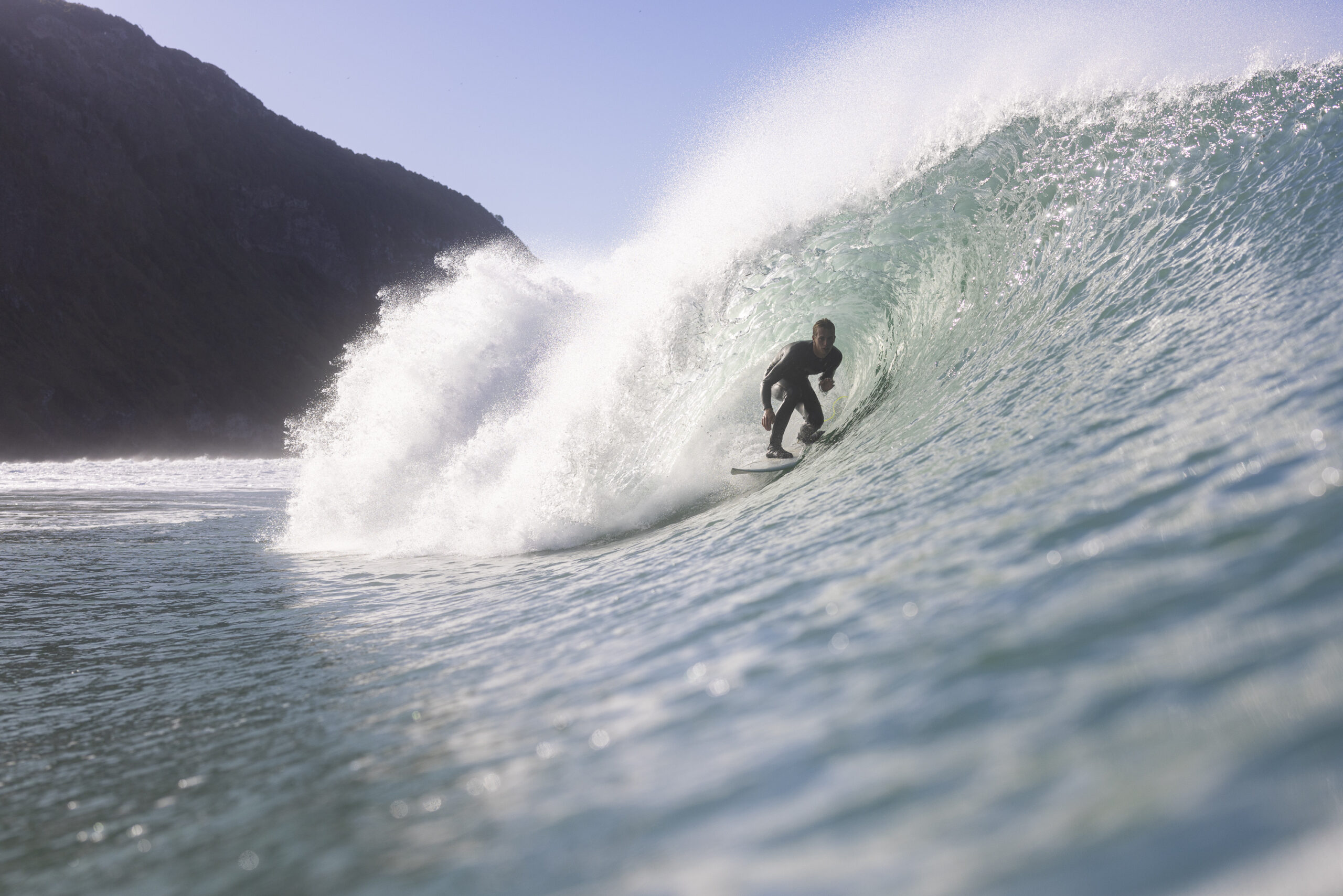
Hutch said they also supported numerous little events with prizes, from school surfing contests in Raglan, to all sorts of Christian Surfers events and the Auckland Scholastics.
“All sorts of people make contact, and we support where we can if we have a store in the area,” he reveals. “We just try to help where we can.”
Hutch completely believes New Zealand can have surfers make the Championship Tour and believes Billy has what it takes.
“If you go back to the year Ricardo qualified the first time, and that wasn’t that long ago,” Hutch begins. “That year Billy was very close to qualifying – one, or two heats away. And there was a semi-final in Newcastle earlier on in that year where he was literally 20 seconds from making the final – he let priority go. I think that heat could have made all the difference. Billy was that close. He’s been there or thereabouts in the Challengers, and he’s had events where he’s absolutely blazed.”
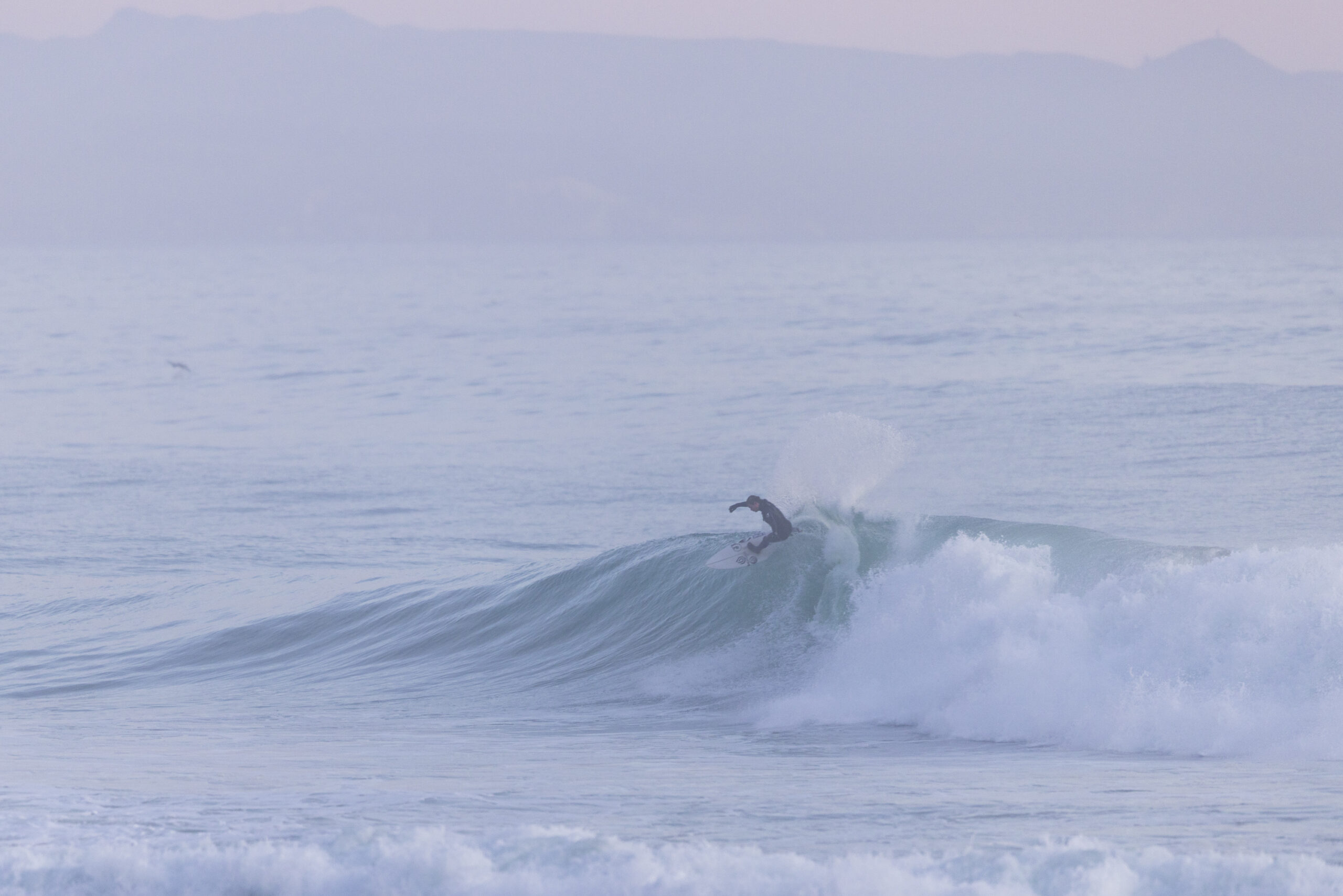
He said that the way that whole thing was set up now, it would take one win, or one high placing to qualify.
“It only takes to get on a bit of a roll,” Hutch asserts. “Billy’s good enough – he’s definitely good enough to make it, but he’s got to get on a bit of a roll. Some of those guys that qualified for the CT look ordinary. I think Cole Houshmand looks the real deal. He’s powerful. He’s a big unit, but CT waves, if they get good waves, will suit him.”
He said there was a trend in CT, and even QS-level events, towards more power and bigger turns.
“You’re now seeing more of the bigger guys qualifying with big man turns, which is kind of cool. It’s not just small whippets all the time, which it has been. Luke Cederman could qualify now with his big turns – he won’t because he’s too old, but, he could if he focused on it. He’s one of New Zealand’s most incredible surfers. He may be 105 or 108 kilos, depending on what day it is, but he is underrated.”
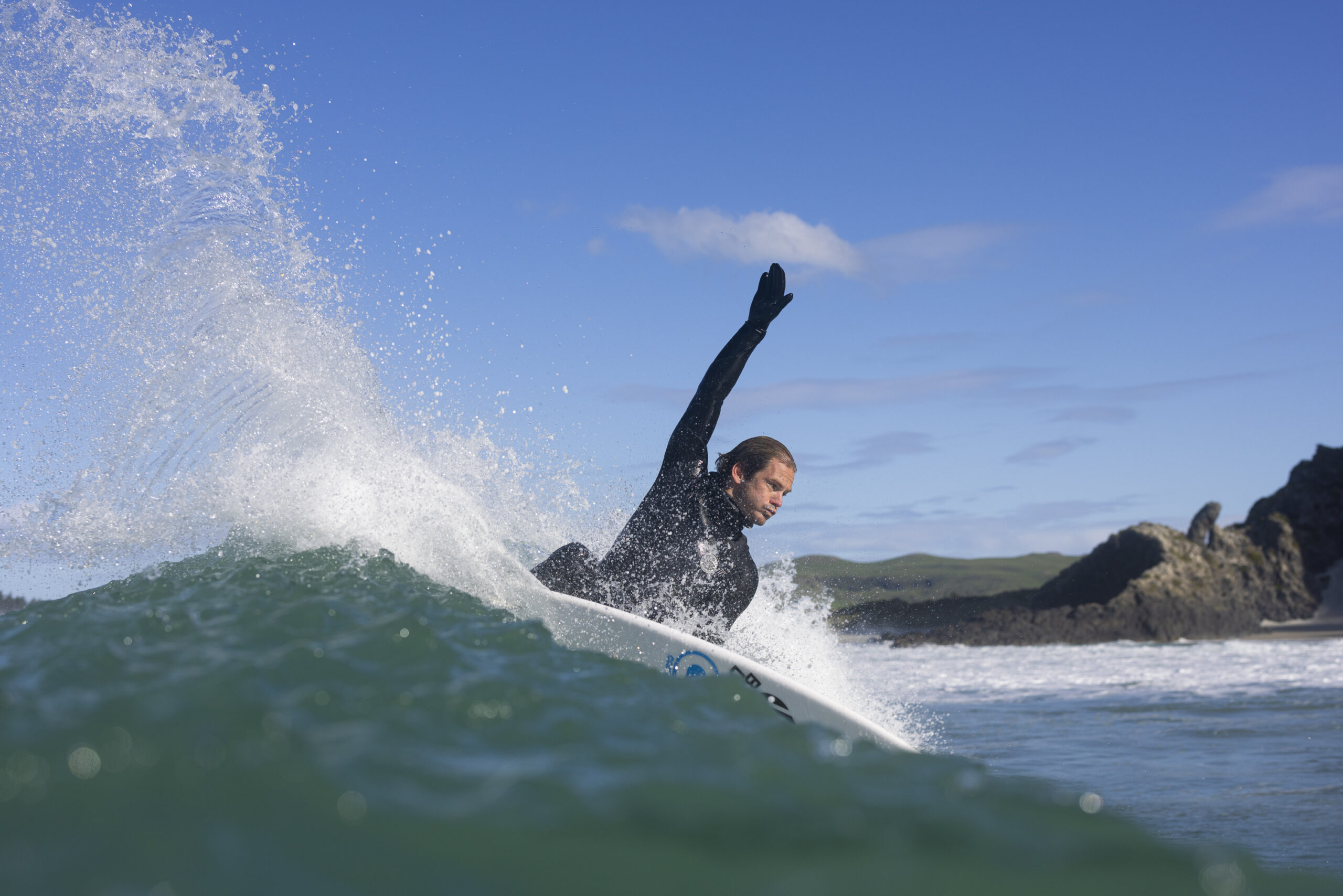
“So, what would it take?” Hutch asks. “Dedication and a lot of hard work. Billy has worked so hard to do what he’s done, and he can look back and be proud of his career … eventually. But he shouldn’t have people saying, when are you going to retire? I hope he hasn’t. But I applaud people who keep banging away and keep trying. You can still qualify at 38, 100 per cent.”
“Billy has worked so hard to do what he’s done, and he can look back and be proud of his career … eventually. But he shouldn’t have people saying, when are you going to retire? I hope he hasn’t. But I applaud people who keep banging away and keep trying. You can still qualify at 38, 100 per cent.”
Hutch said Paige was a shining example.
“Look at Paige at that Nias Comp last year,” he offers. “She was streaks ahead of every other girl in proper waves. Most of those whippet girls didn’t know how to surf that. She did amazingly well this year to make that final this year. Yes, she had a dud final, and her friend won it easily. But being so injured and to get back to that level after all of that was special. She’d only surfed a few times in the lead-up.”
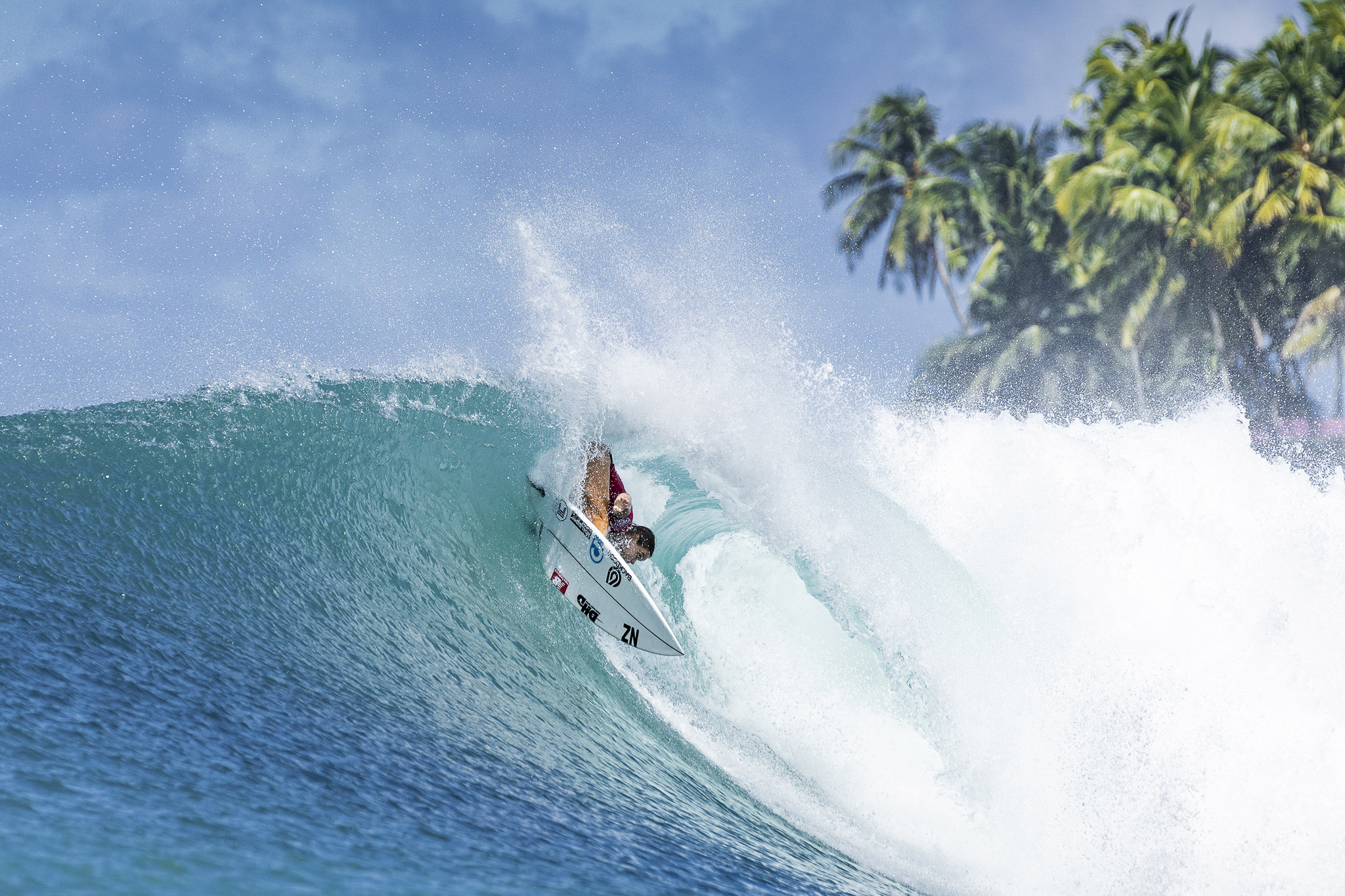
Hutch said he felt for Paige when she got injured in the ISAs.
“I was so gutted for her when she got that injury,” he explains. “She was a heat away from qualification for the Olympics. And that was really, really sad. She’s been there holding up the torch for years. But her time’s not up yet either. She just keeps getting better. She’s got more to go.”
“I was so gutted for her when she got that injury. She was a heat away from qualification for the Olympics … She’s been there holding up the torch for years. But her time’s not up yet either. She just keeps getting better. She’s got more to go.”
While we’re chatting over a coffee or two at the Esplanade on the corner at St Clair, we’re interrupted every few minutes by some beautiful clean sets. The regulars are out there, Part-Time Pete owning the beach, a bit further over Josh Thickpenny tearing into Seconds.
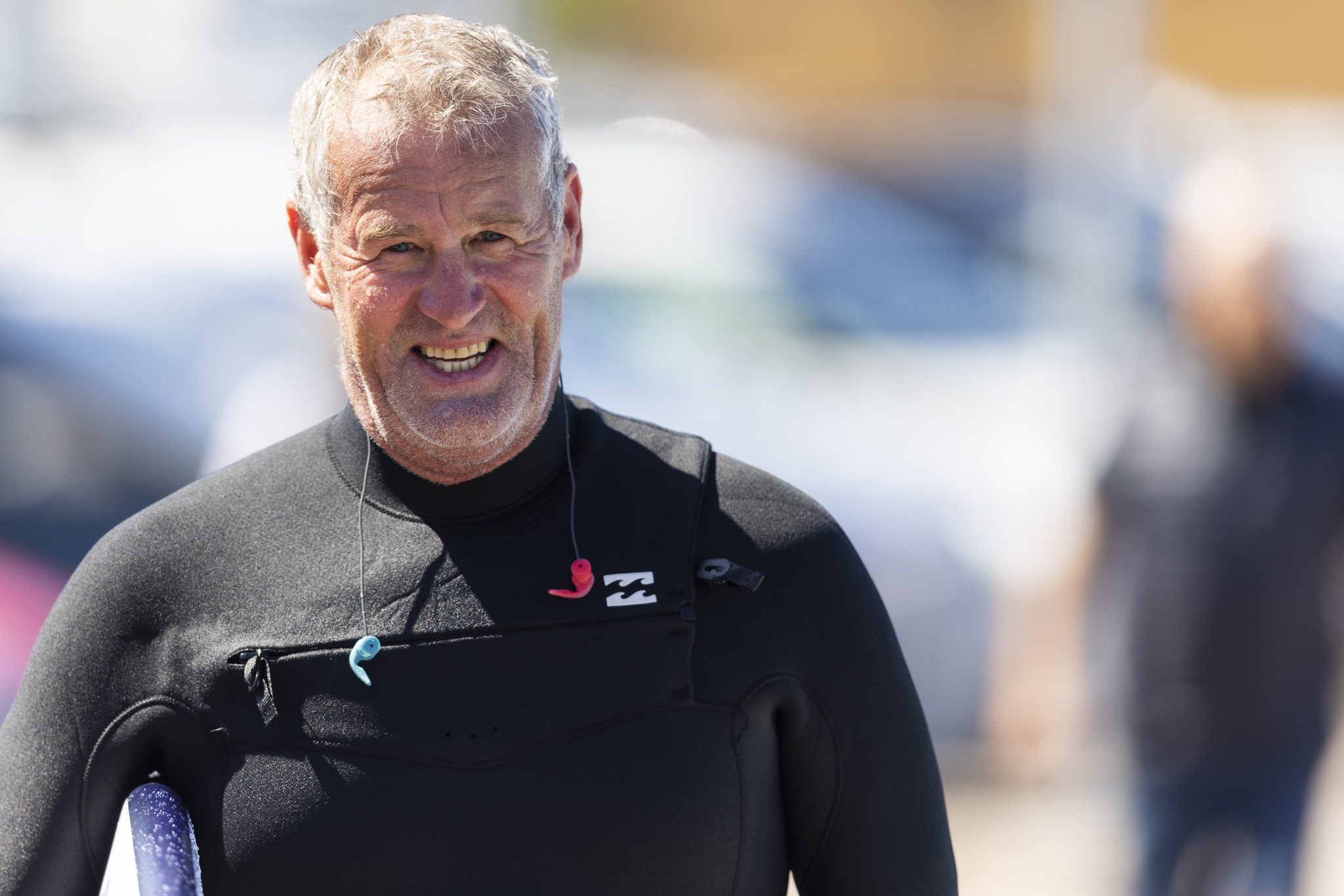
Hutch tells me he surfs three times a week when he can. He had a big surf at Raglan on the Saturday when John John Florence and Daniel Kereopa were towing in at Outsides. He only got three waves, but I knew they’d have been good ones. He’s planning to surf St Clair a little later on the tide.
I joke that the store is his excuse to surf more down these ways.
“The waves look fun today and it is beautiful sunny weather,” Hutch laughs. “But if I have to do three duck dives in a row then I’m done … that’s me, I’m out.”
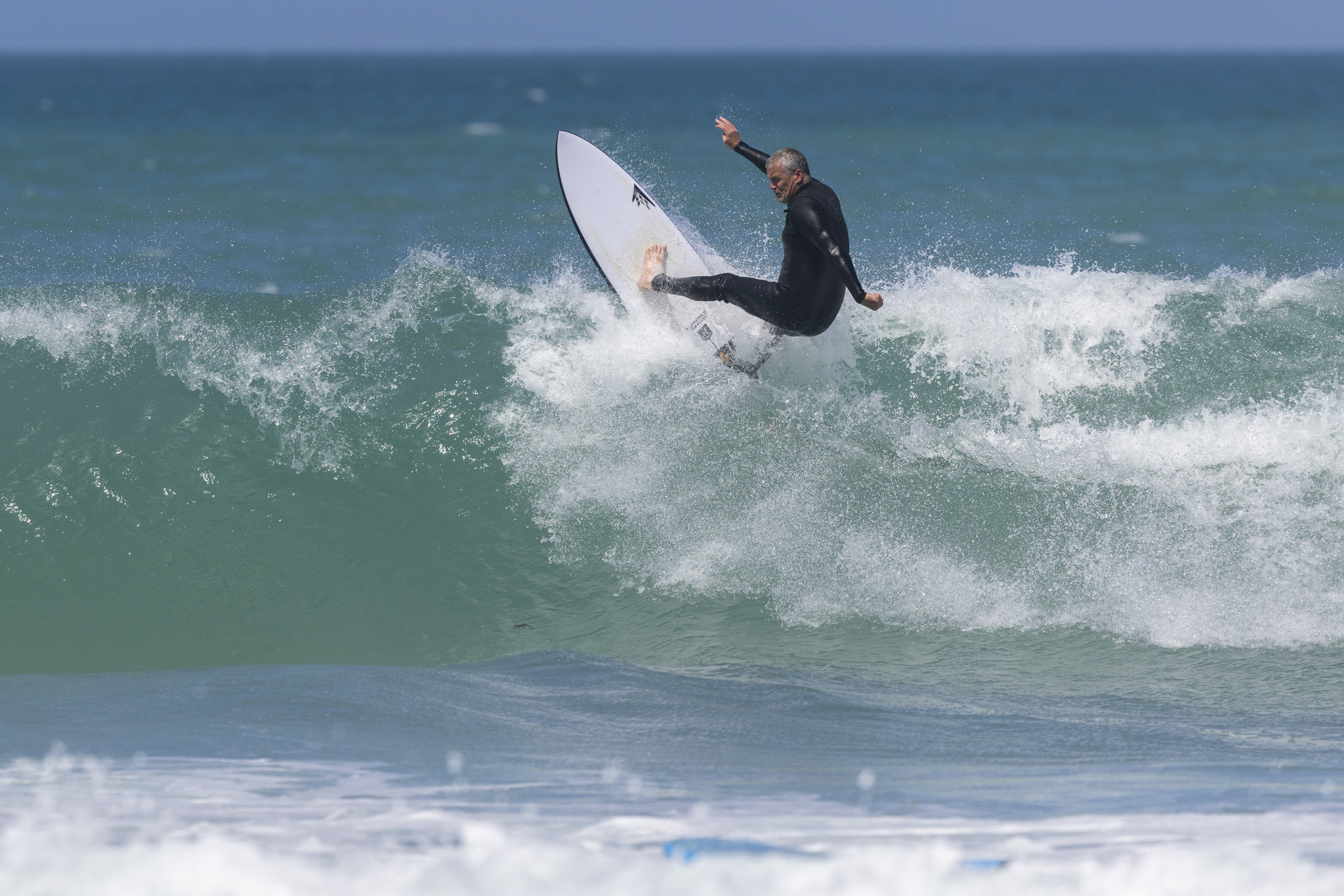
He qualifies for the Over 60s at the Nationals in January and tells me he’d like a rematch with local surfer and old sparring partner Tim Barton, and Darren Kiwi.
“I had a rematch with Darren Kiwi at Taranaki in the over 45s, three years ago,” Hutch tells me, recalling a rivalry that’s spanned his competitive career.
“He got me in the 1992 New Zealand circuit title – he snagged me on the last event. And then we had a rematch in the final of the Over 45s with the Goosta and Darren Kiwi and I got ’em, I won it in right-handers. I got him with my last wave. So, we laugh about that.”
